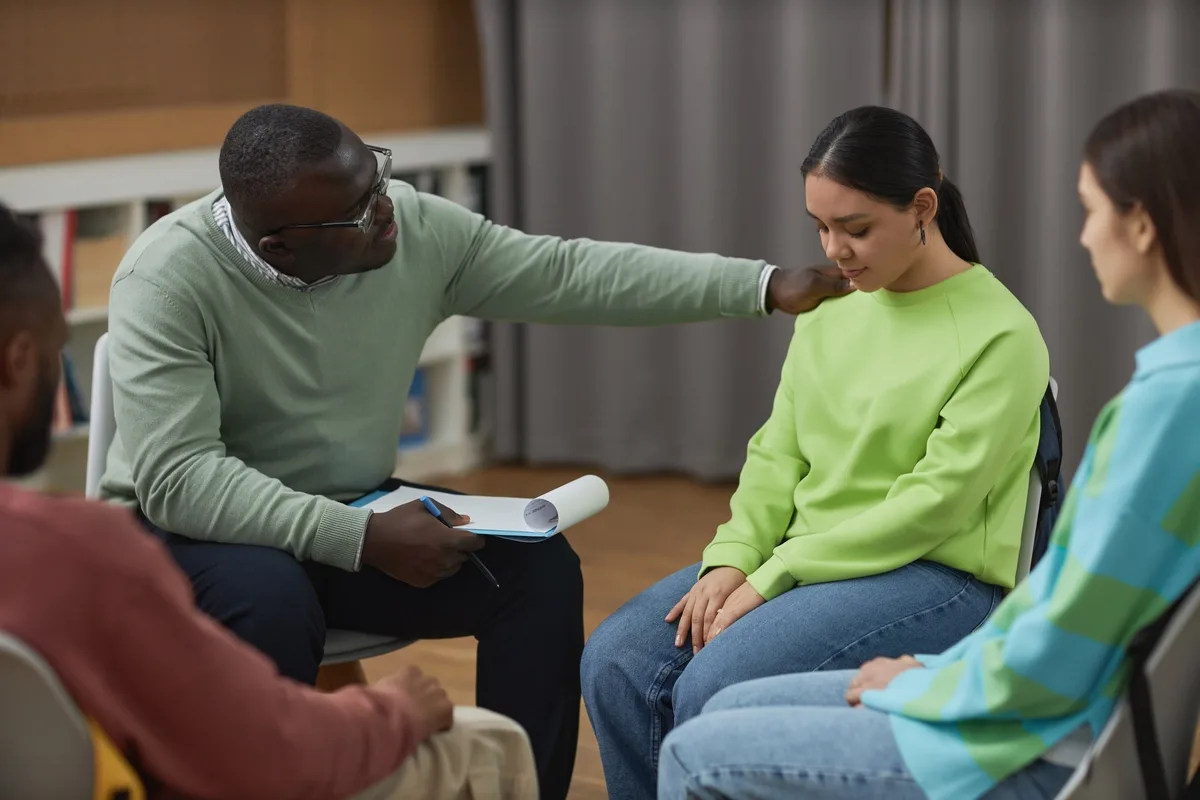24/7 Helpline:
(866) 899-221924/7 Helpline:
(866) 899-2219
Learn more about Group Therapy centers in Libertytown
Group Therapy in Other Cities

Other Insurance Options

Evernorth

Regence

ComPsych

Optima

Access to Recovery (ATR) Voucher

United Health Care

Coventry Health Care

WellPoint

Choice Care Network

Ambetter

Absolute Total Care

Magellan Health

UnitedHealth Group

Covered California

CareSource

Health Partners

Amerigroup

Ceridian

Self-pay options

Optum











